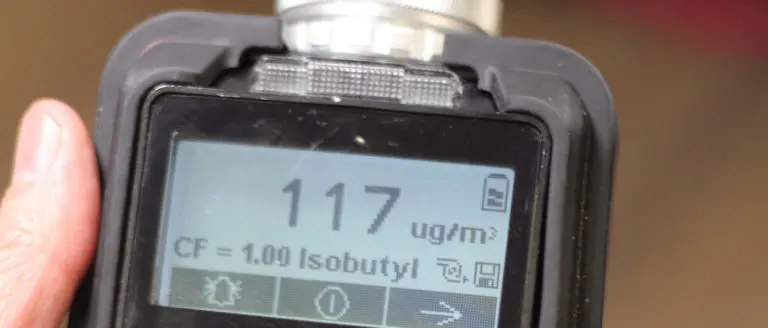Biofuel VOC Content Testing
In recent years, biofuels have gained significant attention as a sustainable alternative to traditional fossil fuels. These renewable energy sources are derived from organic materials such as plant matter or animal waste and offer potential environmental benefits over conventional petroleum-based products. However, the quality of biofuels must be strictly controlled to ensure they meet both regulatory standards and performance expectations.
One critical parameter in ensuring biofuel quality is its volatile organic compound (VOC) content. Volatile organic compounds are hydrocarbons that easily evaporate at room temperature and can have significant impacts on the fuel's stability, emissions, and overall performance. VOCs play a crucial role in determining the efficiency of combustion processes and the production of harmful byproducts.
Biofuel VOC content testing is essential for several reasons:
- Ensuring compliance with international standards such as ISO 178, ASTM D5251, EN 14214, and IEC 6034-5.
- Promoting the reduction of harmful emissions by identifying and controlling volatile compounds that contribute to air pollution.
- Enhancing fuel stability through accurate measurement of VOC levels, which helps in optimizing storage and transportation conditions.
In this service, we leverage our state-of-the-art laboratory facilities and experienced team to conduct comprehensive VOC content testing on biofuels. Our approach ensures that each sample undergoes rigorous analysis using advanced instrumentation such as gas chromatography-mass spectrometry (GC-MS). This method allows for precise identification and quantification of even trace amounts of VOCs, providing reliable data that is essential for quality management and regulatory compliance.
The testing process involves several key steps:
- Sample Preparation: The biofuel sample is first prepared according to the specified protocol, ensuring accurate representation of the fuel's properties. This step includes cleaning the sampling container and adjusting the sample volume as needed.
- Instrumentation Setup: Our laboratory uses cutting-edge GC-MS equipment tailored for VOC analysis. The instrument settings are meticulously configured to optimize sensitivity and selectivity, ensuring accurate detection of all target compounds.
- Data Collection & Analysis: During the testing process, multiple injections are made into the GC-MS system. Each injection generates a chromatogram that is analyzed to identify individual VOCs based on their retention times and mass spectra patterns.
- Reporting Results: Once all data have been collected, our experts interpret the results and compile them into a comprehensive report. This document includes detailed information about the identified VOCs, their concentrations, and any relevant compliance issues or recommendations for improvement.
Why It Matters
Understanding the VOC content in biofuels is vital not only from an environmental perspective but also due to its direct influence on fuel performance and safety. High levels of certain VOCs can lead to issues like fuel instability, increased emissions of pollutants such as benzene and formaldehyde, and potential hazards during transportation or storage.
Regulatory bodies worldwide have established stringent limits for VOC content in biofuels to address these concerns. Compliance with these regulations is not only a legal requirement but also an essential part of maintaining the integrity of the biofuel industry. By offering reliable VOC content testing, we contribute significantly to the development and sustainability of this sector.
Our laboratory adheres strictly to international standards, ensuring that every test conducted meets the highest quality assurance benchmarks. This commitment translates into accurate, trustworthy data that informs critical decisions made by stakeholders in the biofuel industry.
Eurolab Advantages
At Eurolab, we pride ourselves on providing unparalleled expertise and precision in VOC content testing for biofuels. Our advantages are rooted in our advanced facilities and dedicated team:
- Advanced Equipment: We utilize top-tier GC-MS systems that provide superior resolution and sensitivity.
- Experienced Professionals: Our analysts possess extensive experience in fuel testing, ensuring accurate interpretation of results.
- Comprehensive Reporting: Every test comes with a detailed report tailored to meet the specific needs of our clients.
- State-of-the-Art Laboratories: Our laboratories are equipped with the latest technology and methodologies, ensuring consistent high-quality results.
Use Cases and Application Examples
| Scenario | Description |
|---|---|
| Regulatory Compliance | Ensuring that biofuel batches meet the stringent VOC content limits set by regulatory bodies. |
| R&D Optimization | Identifying the optimal blend of ingredients to minimize harmful emissions while maximizing fuel efficiency. |
| Supply Chain Quality Control | Verifying the quality and consistency of biofuel batches throughout the supply chain from production to distribution. |
| Emissions Reduction Programs | Tracking VOC emissions during combustion processes to develop strategies for reducing harmful pollutants. |
| Product Development | Prioritizing the development of biofuels with reduced VOC content to meet evolving market demands and environmental regulations. |
| Sustainability Initiatives | Evaluating the environmental impact of different biofuel formulations by assessing their VOC profiles. |





